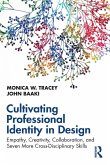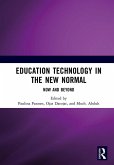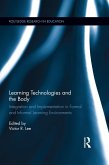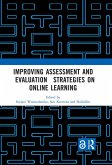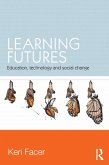38,95 €
38,95 €
inkl. MwSt.
Sofort per Download lieferbar

19 °P sammeln
38,95 €
Als Download kaufen

38,95 €
inkl. MwSt.
Sofort per Download lieferbar

19 °P sammeln
Jetzt verschenken
Alle Infos zum eBook verschenken
38,95 €
inkl. MwSt.
Sofort per Download lieferbar
Alle Infos zum eBook verschenken

19 °P sammeln
- Format: ePub
- Merkliste
- Auf die Merkliste
- Bewerten Bewerten
- Teilen
- Produkt teilen
- Produkterinnerung
- Produkterinnerung

Bitte loggen Sie sich zunächst in Ihr Kundenkonto ein oder registrieren Sie sich bei
bücher.de, um das eBook-Abo tolino select nutzen zu können.
Hier können Sie sich einloggen
Hier können Sie sich einloggen
Sie sind bereits eingeloggt. Klicken Sie auf 2. tolino select Abo, um fortzufahren.

Bitte loggen Sie sich zunächst in Ihr Kundenkonto ein oder registrieren Sie sich bei bücher.de, um das eBook-Abo tolino select nutzen zu können.
Building Better Universities provides a wide-ranging summary and critical review of the increasing number of groundbreaking initiatives undertaken by universities and colleges around the world aimed at building better universities and colleges.
- Geräte: eReader
- mit Kopierschutz
- eBook Hilfe
- Größe: 17.59MB
Andere Kunden interessierten sich auch für
![Cultivating Professional Identity in Design (eBook, ePUB) Cultivating Professional Identity in Design (eBook, ePUB)]() Monica W. TraceyCultivating Professional Identity in Design (eBook, ePUB)33,95 €
Monica W. TraceyCultivating Professional Identity in Design (eBook, ePUB)33,95 €![Building Better Universities (eBook, PDF) Building Better Universities (eBook, PDF)]() Jos BoysBuilding Better Universities (eBook, PDF)38,95 €
Jos BoysBuilding Better Universities (eBook, PDF)38,95 €![Education Technology in the New Normal: Now and Beyond (eBook, ePUB) Education Technology in the New Normal: Now and Beyond (eBook, ePUB)]() Education Technology in the New Normal: Now and Beyond (eBook, ePUB)177,95 €
Education Technology in the New Normal: Now and Beyond (eBook, ePUB)177,95 €![Learning Technologies and the Body (eBook, ePUB) Learning Technologies and the Body (eBook, ePUB)]() Learning Technologies and the Body (eBook, ePUB)40,95 €
Learning Technologies and the Body (eBook, ePUB)40,95 €![Improving Assessment and Evaluation Strategies on Online Learning (eBook, ePUB) Improving Assessment and Evaluation Strategies on Online Learning (eBook, ePUB)]() Improving Assessment and Evaluation Strategies on Online Learning (eBook, ePUB)0,00 €
Improving Assessment and Evaluation Strategies on Online Learning (eBook, ePUB)0,00 €![Learning Futures (eBook, ePUB) Learning Futures (eBook, ePUB)]() Keri FacerLearning Futures (eBook, ePUB)37,95 €
Keri FacerLearning Futures (eBook, ePUB)37,95 €![Learning Technology in Transition (eBook, ePUB) Learning Technology in Transition (eBook, ePUB)]() Jane K. SealeLearning Technology in Transition (eBook, ePUB)48,95 €
Jane K. SealeLearning Technology in Transition (eBook, ePUB)48,95 €-
-
-
Building Better Universities provides a wide-ranging summary and critical review of the increasing number of groundbreaking initiatives undertaken by universities and colleges around the world aimed at building better universities and colleges.
Dieser Download kann aus rechtlichen Gründen nur mit Rechnungsadresse in A, B, BG, CY, CZ, D, DK, EW, E, FIN, F, GR, HR, H, IRL, I, LT, L, LR, M, NL, PL, P, R, S, SLO, SK ausgeliefert werden.
Produktdetails
- Produktdetails
- Verlag: Taylor & Francis eBooks
- Seitenzahl: 258
- Erscheinungstermin: 13. November 2014
- Englisch
- ISBN-13: 9781135127633
- Artikelnr.: 41836531
- Verlag: Taylor & Francis eBooks
- Seitenzahl: 258
- Erscheinungstermin: 13. November 2014
- Englisch
- ISBN-13: 9781135127633
- Artikelnr.: 41836531
- Herstellerkennzeichnung Die Herstellerinformationen sind derzeit nicht verfügbar.
Jos Boys is a freelance consultant. She was previously Teaching Fellow in the Faculty of Art, Design and Social Sciences at Northumbria University, UK. Jos trained originally in architecture, followed by many years' experience teaching design and contextual studies in a variety of higher educational institutions at different levels. She has also worked as an educational technologist and academic developer, developing ways to enhance learning through both technology-rich and pedagogically sound resources and delivery. She has been a consultant for the UK Joint Information Systems Committee (JISC) and has written several books on higher education, including Towards Creative Learning Spaces: re-thinking the architecture of post-compulsory education (Routledge 2010) and, with Peter Ford, The e-Revolution and Post-Compulsory Education: Using business models to deliver quality education (Routledge 2007).
List of Figures
List of Textboxes
Introduction: the shifting boundaries of higher education
Chapter 1: Re-shaping universities and colleges
Theme 1.1: Alternative universities?
Theme 1.2: Radical restructuring
Theme 1.3 Enhancing the student offer
Chapter 2: New patterns of public and private competition and collaboration
Theme 2.1: Hybrid non-profit and for-profit entities
Theme 2.2: Social enterprise and civic engagement
Theme 2.3: Widening participation
Theme 2.4: Improving student performance
Chapter 3: Responding to internationalization
Theme 3.1: International collaborations
Theme 3.2: International networks
Theme 3.3: Developing global citizens
Chapter 4: Changing learning spaces
Theme 4.1: Comprehensive campus re-design
Theme 4.2: Re-designing processes
Theme 4.3: Creating hybrid spaces
Chapter 5: Beyond virtual learning environments
Theme 5.1: The massification of eLearning
Theme 5.2: Seamless virtual and physical integration
Theme 5.3: Increasing digital literacy
Theme 5.4: Using big data
Theme 5.5: Open badging
Chapter 6: The implications of new technologies for learning
Theme 6.1: Changing learning and teaching methods?
Theme 6.2: Open sourcing and sharing
Theme 6.3: Embodied learning
Conclusion: Learning in a post-university world?
List of Textboxes
Introduction: the shifting boundaries of higher education
Chapter 1: Re-shaping universities and colleges
Theme 1.1: Alternative universities?
Theme 1.2: Radical restructuring
Theme 1.3 Enhancing the student offer
Chapter 2: New patterns of public and private competition and collaboration
Theme 2.1: Hybrid non-profit and for-profit entities
Theme 2.2: Social enterprise and civic engagement
Theme 2.3: Widening participation
Theme 2.4: Improving student performance
Chapter 3: Responding to internationalization
Theme 3.1: International collaborations
Theme 3.2: International networks
Theme 3.3: Developing global citizens
Chapter 4: Changing learning spaces
Theme 4.1: Comprehensive campus re-design
Theme 4.2: Re-designing processes
Theme 4.3: Creating hybrid spaces
Chapter 5: Beyond virtual learning environments
Theme 5.1: The massification of eLearning
Theme 5.2: Seamless virtual and physical integration
Theme 5.3: Increasing digital literacy
Theme 5.4: Using big data
Theme 5.5: Open badging
Chapter 6: The implications of new technologies for learning
Theme 6.1: Changing learning and teaching methods?
Theme 6.2: Open sourcing and sharing
Theme 6.3: Embodied learning
Conclusion: Learning in a post-university world?
List of Figures
List of Textboxes
Introduction: the shifting boundaries of higher education
Chapter 1: Re-shaping universities and colleges
Theme 1.1: Alternative universities?
Theme 1.2: Radical restructuring
Theme 1.3 Enhancing the student offer
Chapter 2: New patterns of public and private competition and collaboration
Theme 2.1: Hybrid non-profit and for-profit entities
Theme 2.2: Social enterprise and civic engagement
Theme 2.3: Widening participation
Theme 2.4: Improving student performance
Chapter 3: Responding to internationalization
Theme 3.1: International collaborations
Theme 3.2: International networks
Theme 3.3: Developing global citizens
Chapter 4: Changing learning spaces
Theme 4.1: Comprehensive campus re-design
Theme 4.2: Re-designing processes
Theme 4.3: Creating hybrid spaces
Chapter 5: Beyond virtual learning environments
Theme 5.1: The massification of eLearning
Theme 5.2: Seamless virtual and physical integration
Theme 5.3: Increasing digital literacy
Theme 5.4: Using big data
Theme 5.5: Open badging
Chapter 6: The implications of new technologies for learning
Theme 6.1: Changing learning and teaching methods?
Theme 6.2: Open sourcing and sharing
Theme 6.3: Embodied learning
Conclusion: Learning in a post-university world?
List of Textboxes
Introduction: the shifting boundaries of higher education
Chapter 1: Re-shaping universities and colleges
Theme 1.1: Alternative universities?
Theme 1.2: Radical restructuring
Theme 1.3 Enhancing the student offer
Chapter 2: New patterns of public and private competition and collaboration
Theme 2.1: Hybrid non-profit and for-profit entities
Theme 2.2: Social enterprise and civic engagement
Theme 2.3: Widening participation
Theme 2.4: Improving student performance
Chapter 3: Responding to internationalization
Theme 3.1: International collaborations
Theme 3.2: International networks
Theme 3.3: Developing global citizens
Chapter 4: Changing learning spaces
Theme 4.1: Comprehensive campus re-design
Theme 4.2: Re-designing processes
Theme 4.3: Creating hybrid spaces
Chapter 5: Beyond virtual learning environments
Theme 5.1: The massification of eLearning
Theme 5.2: Seamless virtual and physical integration
Theme 5.3: Increasing digital literacy
Theme 5.4: Using big data
Theme 5.5: Open badging
Chapter 6: The implications of new technologies for learning
Theme 6.1: Changing learning and teaching methods?
Theme 6.2: Open sourcing and sharing
Theme 6.3: Embodied learning
Conclusion: Learning in a post-university world?

